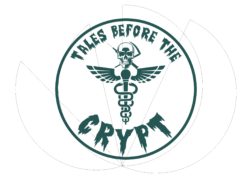I have been a provider of medicine of some sort most of my adult life. Here are some of my tips on how to do it right.
Well, most of the folks who read this blog are probably not Doctors, PAs, or nurse practitioners. So I offer this as a way for you (if you still have a choice) to tell if your Provider is the right fit for you. Yes, if you don’t like your caregiver you do have a choice and can get someone else. At least for now.
Number 1. Is your provider on time for your appointment? As long as you do the same and arrive on time, they should too. After all, we all have lives, have kids to manage, jobs to return to, errands to run and so on. If they are running behind, the office should give you that information when you check in, so you have the option to reschedule. If you sit and stew in the waiting room it breeds unrest and can lead to an unhappy visit no matter how the actual face to face went.
2. How does your provider look? Appearance matters. If they forgot to shave, smell bad or are wearing something unprofessional, think twice. Maybe that’s ok with your style, so okay. I am not a big fan of Medical Providers wearing scrubs.

3. Are they looking at you or their computer.
Since we started using computers we have had to make changes to our old-school documentation. In the good old days we could quickly dictate into a recorder and send off to a transcription service for a professional document. Or we could scribble it down on a piece of paper that no one could read and call it good. Now it all has to be input by the provider. Unless they have a scribe that follows you around to take notes for you. Not to fond of my Urologist having the scribe but he’s the best in town so I put up with it. I don’t care for that model because it inhibits the patient from being more truthful about potentially embarrassing or sensitive information. Yes, we do talk. I prefer taking my own notes then moving to the computer later. Face to face with the patient is best.
4. Do they knock on the door and introduce themselves? Shake your hand? Very important and meet any friends or family support you may have with you. I have had experiences with folks that never make eye contact. Not only creepy but not too professional. This is sign of poor social skills and they should move into an area of medicine where they don’t interact with people. Usually reserved for radiologists. I took my teenage daughter into a local ER one night and the young Doctor never introduced herself to me and my wife and went straight to my girl, at the time a minor. Needless to say I/we were pissed.
5. Be prepared. This is a pet complaint of mine. They should come in to see you having done some research about you. Who you are, your medical history, medications and the reason you are there. Typically I study any of my new Patients’ previous history, medications and any hospital visits they have had prior to meeting them. This is especially important in Geriatrics because these folks DO have a history, sometimes 90 plus years of history. They do not have time to go through their complete history in the short time allowed in most practices. Be prepared, I say. After all, how many times have you said something like, “don’t you have that information in the chart? I gave it all to the front office.”
6. Are you listening to me? I mean, are they really listening. The eye contact, the air of concern. Yes, sometimes we do have to politely interrupt and redirect because after all, we don’t have all day to hear the entire book, just the chapter and reader’s digest version please.
7. Share something about yourself. Are these people expecting you to divulge all your medical secrets and thoughts about depression, anxiety, ED, hair loss and so forth real people too? Hopefully your provider doesn’t mind sharing about their job, interests or hobby. (If they have any). For some in medicine, that IS their life.
8. Lay hands on. I mean do an exam. The art of medicine means actually touching people. I know, covid and all. If your provider doesn’t do at least a basic screening exam when you first meet them, find someone else. You would be (or maybe not) surprised at stories I hear about folks going in for a medical visit and when I ask them if their Doctor did an exam they say no. You mean he/she never touched you, no listen to heart, lungs, look at your neck, chest, legs, ears? Nope. During my exams I have found things coincidentally that had nothing to do with the initial visit, but could have been life-threatening otherwise. Patients are thankful. I am gratified.
9. When you say you will do something, do it. I mean, refill prescriptions in a timely manner, nowadays with electronic methods there is no excuse for taking days on end. When you say you are going to get this person a referral for specialist, do it. Or task your staff to do so and follow-up to make sure they did.

10. The four dreaded last words. “Oh, by the way.”
Depending on how far behind your Doctor, nurse practitioner or PA might be, they might try to evade these words. Don’t be afraid to use these words. (Even though we hate them). Sometimes things come to mind that you forgot or did not write down. (writing down your concerns is always a good idea). Your provider may tell you that they can address these additional items at another visit. This is usually a polite and skillful way of doing it, but make sure you get that follow-up visit schedule before you leave the building and state clearly what it is you wish to address. Good practitioners understand your needs and this is how they build their practice by getting their patients to feel free to return to address their concerns any time.

